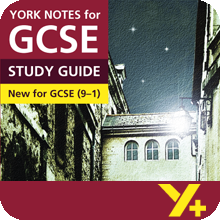Examiner's Notes
You assessed this answer as Grade 4.
Hover over the highlighted text to read the examiner’s comments.
Read from Chapter 10 (‘Henry Jekyll’s Full Statement of the Case’) ‘Hence it came about’ to ‘my own knowledge does not pass beyond that point’ (pages 57‒8). In this extract, Jekyll explains how he came to see a division in himself between his respectable public life and the behaviour he was ashamed of.
Starting with this extract, explore how Stevenson presents the idea of the ‘double’ in The Strange Case of Dr Jekyll and Mr Hyde.
Write about:
- how Stevenson presents the idea of the ‘double’ in this extract
- how Stevenson presents the idea of the ‘double’ in the novel as a whole.
The concept of the ‘double’ is central to ‘The Strange Case of Dr Jekyll and Mr Hyde’. There are several types of duality – the most important is the mix of good and evil in human nature. Other types of duality include appearance and reality, and science and the supernatural. This passage focuses most on the duality of ‘good and ill’ in Jekyll’s personality.
Jekyll’s Statement is an important part of the novella as it is the first time we find out the whole story and see events from Jekyll’s point of view. In this passage, Jekyll states one of the main themes of the book: ‘those provinces of good and ill which divide and compound man’s dual nature.’ This second aspect of a person is sometimes called their ‘alter ego’ – the aspect which Jekyll names Hyde.
Jekyll says he had been aware of two aspects to his character for a long time and felt he was living a double life. He tried to live as if he had only one nature, hiding his ‘faults’ because he was ashamed of them, but it was a strain. This introduces a different type of duality, that between appearance and reality. The appearance he presents to the outside world – a respectable doctor – is not the whole reality of who he is. Although he calls himself a ‘double-dealer’, which is usually a term for a cheat or criminal, Jekyll is honest in saying that both aspects – good and bad – were equally part of him. He now recognises that these opposite urges ‘made me what I was’, but it is too late to put himself back together into a single, whole personality. He also sees that the division is present in everyone, though it is less obvious in most people.
Jekyll’s scientific work leads him to a solution to his own ‘double-dealing’ life. He can make a potion which separates out the ‘bad’ and gives it independent life. But all he is really doing is making an ‘even deeper trench’ between the parts of his personality. He says that his scientific studies ‘led wholly toward the mystic and the transcendental’. This is the point over which he first falls out with Lanyon. The science/supernatural duality is presented through the contrasting characters Jekyll and Lanyon. Lanyon sees science as being the wholly rational, considering anything else to be ‘balderdash’, a word that dismisses Jekyll’s view without giving it any dignity. Jekyll’s choice of words, ‘mystical’ and ‘transcendental’, make his interests sound elevated and superior. The two areas of knowledge, the scientific and the mystical or supernatural, are another aspect of ‘the double’ in the novel.
Jekyll approaches the mystical through science. When ‘Jekyll and Hyde’ was written, people were starting to take an interest in psychology, which also tries to investigate the mind or soul through scientific ways. Writing about this duality of science/mystery would make the novella seem topical to Stevenson’s audience. The idea of a split between the ‘good’ spirit and the ‘bad’ body seeking physical pleasures is very old. Jekyll says that the awareness of ‘good and ill’ parts of the human ‘lies at the root’ of all religions. Stevenson himself rejected Christianity and became an atheist. There may be some criticism in Jekyll’s statement – religions exploit the natural duality of human nature, making people feel bad about themselves.
The last line suggests there might be more than two aspects to human nature but Jekyll doesn’t know because his explorations did ‘not pass beyond that point’ – he only experimented with two. This would mean a character could have more than one alter ego. But Jekyll’s conclusion – which comes too late to help him – is that it is natural to be composed of conflicting parts: ‘man is not truly one, but truly two.’ Trying to drive out the evil, to separate it in the personality of Hyde, is his downfall. The separation is not sustainable. Although Jekyll decides to give up Hyde and stops taking the potion, he cannot – Hyde breaks through, because he is ‘truly’ part of Jekyll.
